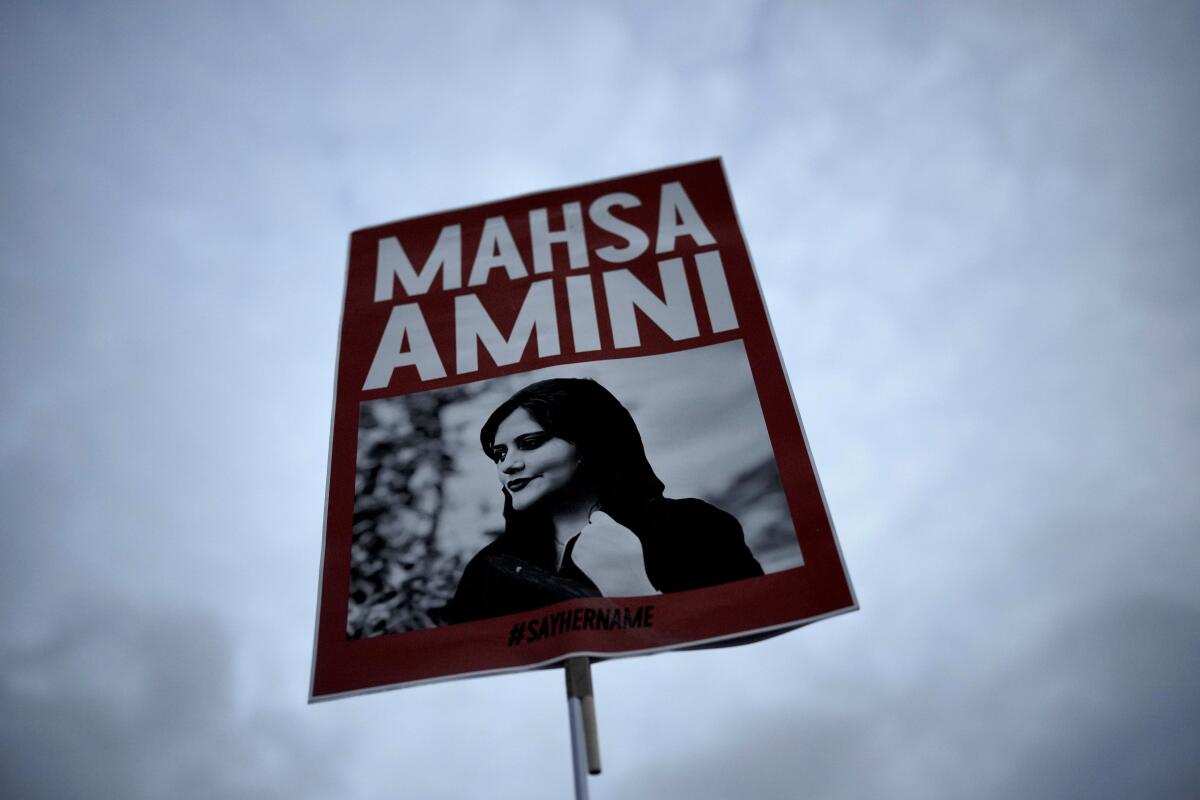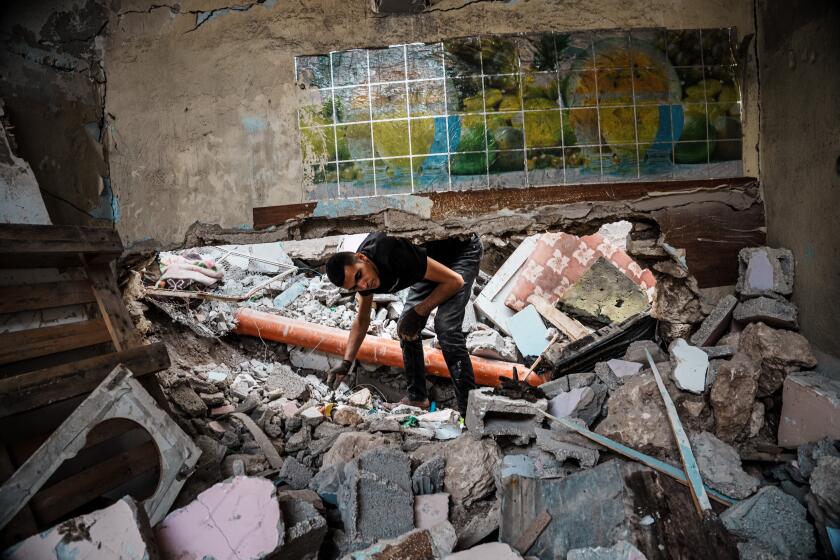Iran sentences 2 journalists for allegedly collaborating with U.S. Both covered Mahsa Amini’s death

- Share via
DUBAI — A court in Iran sentenced two journalists to up to seven years in prison for collaborating with the U.S. government and other charges, local reports said Sunday. Both women have been imprisoned for more than a year following their coverage of the death of Mahsa Amini while in police custody in September 2022.
The sentencing can be appealed within 20 days.
The two journalists, Niloufar Hamedi, who broke the news of Amini’s death for wearing her headscarf too loose, and Elaheh Mohammadi, who wrote about her funeral, were sentenced to seven and six years in prison, respectively, the judiciary news website Mizan reported Sunday.
The New York-based Committee to Protect Journalists condemned the decision to sentence the two journalists and reiterated its call for their immediate release.
“The convictions of Niloofar Hamedi and Elahe Mohammadi are a travesty and serve as a stark testament to the erosion of freedom of speech and the desperate attempts of the Iranian government to criminalize journalism,” said Sherif Mansour, the committee’s Middle East and North Africa program coordinator.
Israeli warplanes have struck targets across Gaza and airports in Syria as the war with Hamas in Gaza threatens to become a broader conflict.
The Tehran Revolutionary Court had charged the journalists with allegedly collaborating with the hostile American government, colluding against national security and propaganda against the system, according to Mizan.
Hamedi worked for the reformist newspaper Shargh, while Mohammadi worked for Ham-Mihan, also a reformist paper. They were detained in September 2022.
The Office of the U.S. Special Envoy for Iran condemned the sentences on the platform X, formerly known as Twitter, and said: “Niloufar and Elaheh should never have been jailed, and we condemn their sentences.”
It also said, “The Iranian regime jails journalists because it fears the truth.”
The office is responsible for developing, coordinating and implementing the State Department’s Iran policy and reports directly to the secretary of State.
In May, the United Nations awarded them both its premier prize for press freedom for their commitment to truth and accountability.
Amini’s death touched off months-long protests in dozens of cities across Iran. The demonstrations posed one of the most serious challenges to the Islamic Republic since the 2009 Green Movement protests drew millions to the streets.
While nearly 100 journalists were arrested amid the demonstrations, Hamedi’s and Mohammadi’s reporting was crucial in the days after Amini’s death to spread the word about the anger that followed.
Their detentions have sparked international criticism over the bloody security force crackdown that lasted months after Amini’s death.
Since the protests began, at least 529 people have been killed in demonstrations, according to human rights activists in Iran. More than 19,700 others have been detained by authorities amid a violent crackdown trying to suppress the dissent. Iran for months has not offered any overall casualty figures, while acknowledging tens of thousands had been detained.
More to Read
Sign up for Essential California
The most important California stories and recommendations in your inbox every morning.
You may occasionally receive promotional content from the Los Angeles Times.











